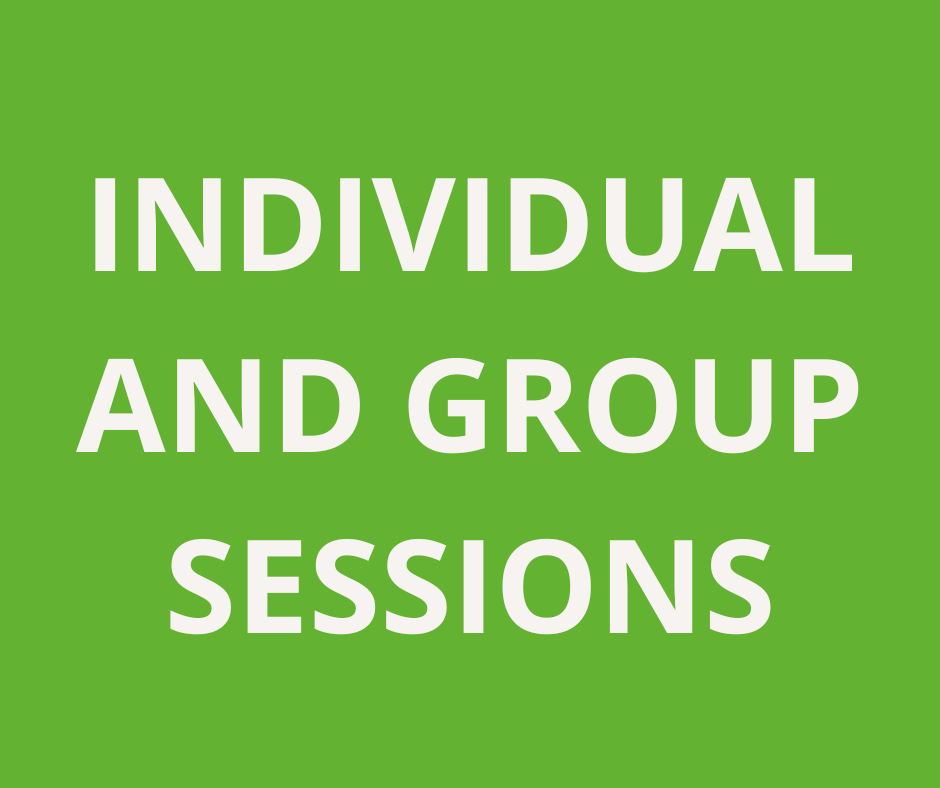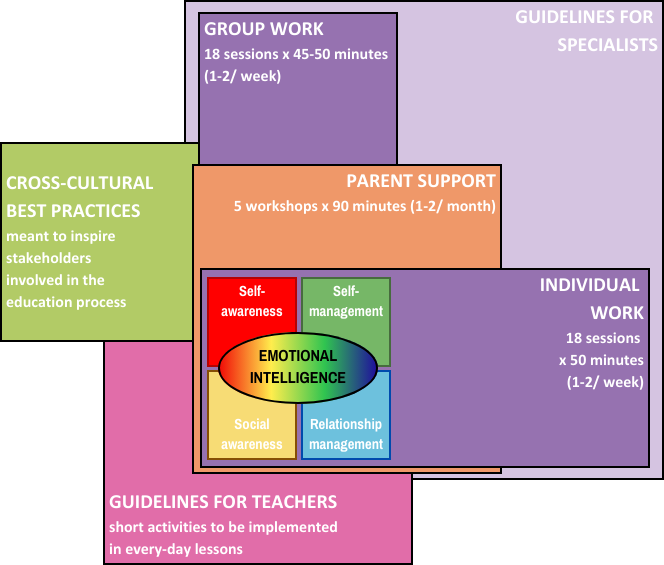EQ Kids Model
(students ages 6-10)

The Model of working with a pupil aged 6-10 for development of emotional intelligence -EQ Kids defines processes, tools and rules of working with pupils aged 6-10, especially those with adaptive difficulties, for the development of emotional intelligence in the educational environment and at home, involving teachers, tutors, school pedagogues, psychologists, counsellors and parents.
The EQ Kids model focuses on the stage of the first school cycle, which is quite a challenge in a child’s life, while also offering generous opportunities for developing the emotional intelligence and handling issues connected with school adaptation, making and maintaining friends, gaining autonomy. Starting school is a time of rapid growth for children, both physically and emotionally. Adapting to new learning environments and social expectations can be challenging. Parents and teachers play a key role in supporting this transition by nurturing children’s emotional intelligence.
The goal of the EQ Kids model is to present the comprehensive scheme how to work with pupils and how to support them in developing their emotional intelligence, by addressing school personnel, namely teachers, tutors, school pedagogues, counsellors, psychologists, socio-therapists and other experts working with pupils aged 6-10 experiencing difficulties and with their parents or other family members.
The EQ Kids model will cover four key components of emotional intelligence, in order to promote well-being of pupils, to boost their ability to adapt to the school environment and to ensure successful interpersonal relationships and educational success. These four key components are self-awareness, self-management, social awareness and relationship management.
GLOSSARY
The glossary provides definitions of the key terms used in the model.
THEORY
The model contains two parts:
- Part 1 is dedicated to theoretical information, such us the dimensions of emotional intelligence, the impact of the systematic training guided by teachers, parents and other professionals upon the development of emotional intelligence and also about the systemic perspective upon behavioural and disadaptive problems
- Part 2 is dedicated to practical information, by describing specific techniques, exercises, worksheets, guidelines, organized by key components (follow the colour codes to search for a certain one), for managing the development of emotional intelligence, which are to be implemented directly wih the parents.
Part 1 is addressed to both teachers and specialists involved in the education process of the pupils
Part 1. Emotional intelligence and the educational environment
- Chapter 1. The first school cycle – a great challenge in the child’s life
- Chapter 2. Description of the emotional intelligence and its components
- Chapter 3. The development of the emotional intelligence and its importance
- Chapter 4. The role of teachers in the development of emotional intelligence
- Chapter 5. The systemic perspective upon behavioural and disadaptive problems
Part 2 is divided into chapters focusing on different target groups, as follows:
Part 2. Practical guidelines for developing the emotional intelligence within the school environment
- Chapter 6. Guidelines for teachers
- Chapter 7. Guidelines for specialists for individual work
- Chapter 8. Guidelines for specialists for group work
- Chapter 9. Parent support
- Chapter 10. Cross-cultural best practices
ACTIVITIES FOR TEACHERS
Activities for teachers present several short activities, which teachers may implement in their everyday lessons, no matter what subjects they teach.
INDIVIDUAL AND GROUP SESSIONS
The Model offers a variety of individual and group sessions with dedicated chapters to each. Teachers can expect the following:
1. short activities, which they are encouraged to implement in their everyday lessons, no matter the subject they teach,
2. a complete program of 18 50-minute, one-to-one sessions (1 introductive, 4 for each component and 1 final ) for developing the emotional intelligence of kids, meant to be delivered by trained school specialists (such as but not limited to psychologist, school counsellor, school pedagogue, social worker, tutor, support teachers),
3. a complete program for developing the emotional intelligence of kids in 18 45-50-minute group/ class lessons (1 introductive, 4 for each key component and 1 final), meant to be delivered either by trained school specialists or by experienced teachers/ youth educators who are already familiar with emotional intelligence development mechanisms. The duration of the lessons were estimated according to the duration of a teaching period in partner countries, but may be adjusted according to the individual needs of the class.
WORKSHOPS FOR PARENTS
Parents can expect a complete program for supporting them in developing the emotional intelligence of their children. The program is composed of 5 workshops (1 introductive and 1 for each key component) having a duration of approximately 90 minutes and it is recommended to be delivered either by a trained school specialist (psychologist, school counsellor, school pedagogue, social worker, tutor, support teacher, psychotherapist/ socio-therapist etc.) or by experienced teachers/ trainers/ adult educators who are already familiar with emotional intelligence development mechanisms.
BEST PRACTICES
A cross-country, cross-continental andcross-cultural collection of best practices is provided. These best practices are meant to inspire both professionals working in the field of children’s education and stakeholders involved in managing the education process (such as school headmasters, education inspectors, education curricula and policy makers etc.).









